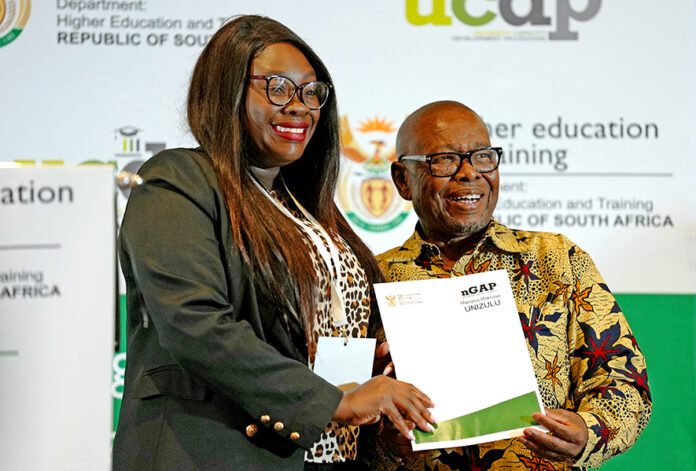Vice-chancellors, university executives, academics, the heads of the National Research Foundation (NRF) and the British Council joined minister Blade Nzimande this week to celebrate a milestone in the development of black academics.
Nzimande, the minister of higher education, science and innovation, presented certificates to 90 participants who successfully completed the six-year New Generation of Academics Programme (nGAP) at a colloquium in Kempton Park.
The academics are the first and second cohorts to complete the nGAP, which was launched by Nzimande, who was then minister of higher education and training, in 2015.
The nGAP, which targets previously disadvantaged groups, especially black women, allocates posts at all 26 universities in South Africa to develop promising young scholars into fully fledged academics.
The nGAP comprises a three-year development programme to acquire a PhD or doctoral degrees and an additional three years in an academic position.
Nzimande said his department spent R2.5-million per participant for the duration of the six-year programme. He added that 77% of the participants had been fully absorbed by the institutions.
The nGAP is one of the staff development programmes that are implemented by the department as part of Staffing South African Universities’ Framework under the University Capacity Development programme. Nzimande said the nGAP, which is in its eighth year, resulted in 760 allocated posts by the end of last year.
“A total of 583 of the 758 (77%) lecturers have been successfully appointed into lecturer positions by our universities and are still active in the programme. The remaining 175 (23%) have exited the academy,” Nzimande said on the first day of the two-day colloquium held at Emperors Palace Convention Centre from Wednesday.
The programme, conducted in conjunction with universities, the NRF and British Council, will allocate a further 85 posts for the current financial year.
“This will bring the total allocated posts to universities to 843,” he said.
The nGAP requires that at least 55% of candidates recruited by universities must be black South African women.
Among the speakers and delegates were the University of Zululand vice-chancellor prof Xoliswa Mtose, Walter Sisulu University vice-chancellor prof Rushiella Songca, NFR CEO prof Fulufhelo Nelwamondo, British Council country director George Barrett and Prof Andre Keet, who was representing the vice-chancellor of Nelson Mandela University prof Sibongile Muthwa.
Speaking to Sunday World, Nzimande said while there was a lot of progress in the universities space to develop and retain black academics, more attention needed to be given to improving alignment in different sectors of the post-education and training system.
He said the post-education and training system, which is still a new concept in South Africa, required improvement and alignment between universities and technical and vocational education and training (TVET) colleges and community education colleges.
“We have six or eight universities now that are training TVET college lecturers. It’s a very important alignment issue because universities are using the knowledge they have to empower [TVET college] lecturers. You still have a lot of [TVET college] lecturers who are not adequately trained.
“But the much more direct alignment is that some of the universities are now beginning to accept the national certificate vocational (NCV), which is the equivalent of matric. All universities before did not accept NCV. Accepting it ensures we do not have cul-de-sacs in the system,” he said.
For more education news from Sunday World, click here.
Follow @SundayWorldZA on Twitter and @sundayworldza on Instagram, or like our Facebook Page, Sunday World, by clicking here for the latest breaking news in South Africa.



